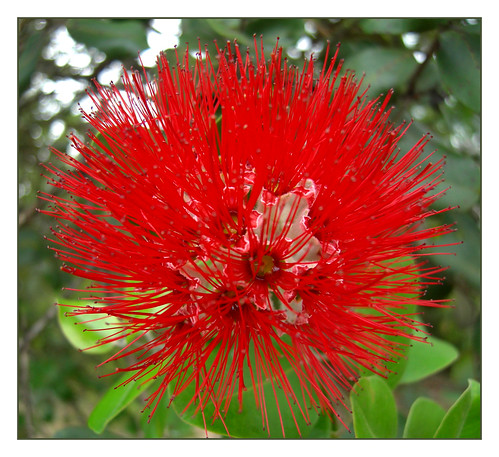“Aloha ‘Oe” (Fond Farewell)
Composer: Queen Lili'uokalani, 1878
Performed by Hawaiian Quintet, c. 1913
With haunting vocals and the unmistakable lull of the ukulele, “Aloha ‘Oe” can be immediately recognized by any kama’aina, or any native Hawaiian. As a bittersweet leitmotif, this song has captured the spirit of the Hawaiian culture and has been used in many films, radio and television commercials to signify the beauty and passion of the Hawaiian Islands.
The Spirit of Aloha
Hearing this song always conjures up the “spirit of aloha”, which may mean love, affection, compassion, mercy, sympathy, pity, kindness or grace. Aloha is also a common greeting and expression of farewell. In this case, “Aloha ‘Oe” means “Farewell to Thee.”
The idea of aloha is so important in Hawaii that the “Aloha Spirit” is even part of State law. The statute reads in part: “Aloha Spirit is the coordination of mind and heart within each person. It brings each person to the self.”
History of the Song
The last reigning monarch of Hawaiian Islands, Queen Lydia Lili'uokalani wrote “Aloha ‘Oe” in the late 1870s when she was still “Princess Lili'uokalani”. Although she categorized it as a love song, it is considered by most a song of farewell, due to its recurrent lyric theme.“Aloha ‘Oe” may have been performed on the Mainland as early as 1883, by Berger and the RHB at the Triennial Conclave of the Knights Templar (King). The song was first published by the Pacific Music Company in San Francisco the following year.
Analysis of the Lyrics
The song’s lyrics celebrate the beauty of Hawaii’s tropical locale. From the “rain by the cliffs” to the “`ahihi lehua of the vale,” the images are as distinctive as the “purple mountain majesties” that Katharine Lee Bates wrote in “America the Beautiful.”
 The best way to translate lyrics is to experience the song through a hula performance. With such a slow and melancholy feel, one wouldn’t normally imagine dancing to accompany this song. However when a hula dancer performs to “Aloha ‘Oe,” it is their job to use their body to interpret and illustrate the beauty and passion the song (also known as a mele.) The dancer brings the song to life sways her arms to signify the “rain by the cliffs” and “gliding through the trees.” But the most heartwarming aspect of the hula interpretation is “A fond embrace… until we meet again,” the dancer’s hands move from their hearts towards the audience as an offering of love.
The best way to translate lyrics is to experience the song through a hula performance. With such a slow and melancholy feel, one wouldn’t normally imagine dancing to accompany this song. However when a hula dancer performs to “Aloha ‘Oe,” it is their job to use their body to interpret and illustrate the beauty and passion the song (also known as a mele.) The dancer brings the song to life sways her arms to signify the “rain by the cliffs” and “gliding through the trees.” But the most heartwarming aspect of the hula interpretation is “A fond embrace… until we meet again,” the dancer’s hands move from their hearts towards the audience as an offering of love.International Appeal of “Aloha”
For such a tiny cluster of islands in the center of the Pacific Ocean, Hawaii has made a huge impact on the United States. From the ceremonial leis donned at graduations to luau themed parties, Hawaiian culture has delighted and enchanted people of all ages.
Although music and dance has always been a part of Hawaiians’ spiritual expression, the music became highly sought-after by mainstream audiences outside of Hawaii from 1915 to 1930.
Hawaiian music too has always been popular in Japan. Japanese emigration to Hawaii began in 1885, and by 1922 Japanese (Nisei) Hawaiians, the Haida Brothers returned to Japan as the country’s first Hawaiian band. During the 1920s and 30s Hawaiian music reached a peak in popularity, with first generation Hawaiians regular visitors (Far Side Music).
Japanese people have enjoyed vacationing in Hawaii so much that their radio stations that feature Hawaiian music thrive (Polynesian Voyaging Society). Hawaiian music provides the hardworking people tropical escape any time of the day. It’s no wonder that it continues to be popular worldwide!
The music of Hawaii may have evolved from Queen Lili'uokalani’s time, but the passion and Spirit of Aloha remains every time “Aloha ‘Oe” is sung at a luau, used in a video clip, or played on the radio.
Ha`aheo ka ua i nâ pali
Ke nihi a`ela i ka nahele
E hahai (uhai) ana paha i ka liko
Pua `âhihi lehua o uka
Hui:
Aloha `oe, aloha `oe
E ke onaona noho i ka lipo
One fond embrace,
A ho`i a`e au
Until we meet again
`O ka hali`a aloha i hiki mai
Ke hone a`e nei i
Ku`u manawa
`O `oe nô ka`u ipo aloha
A loko e hana nei
Maopopo ku`u `ike i ka nani
Nâ pua rose o Maunawili
I laila hia`ia nâ manu
Miki`ala i ka nani o ka lipo
Ke nihi a`ela i ka nahele
E hahai (uhai) ana paha i ka liko
Pua `âhihi lehua o uka
Hui:
Aloha `oe, aloha `oe
E ke onaona noho i ka lipo
One fond embrace,
A ho`i a`e au
Until we meet again
`O ka hali`a aloha i hiki mai
Ke hone a`e nei i
Ku`u manawa
`O `oe nô ka`u ipo aloha
A loko e hana nei
Maopopo ku`u `ike i ka nani
Nâ pua rose o Maunawili
I laila hia`ia nâ manu
Miki`ala i ka nani o ka lipo
Translation:
Proudly swept the rain by the cliffs
As it glided through the trees
Still following ever the bud
The `ahihi lehua of the vale
Chorus:
Farewell to you, farewell to you
The charming one who dwells in the shaded bowers
One fond embrace,
'Ere I depart
Until we meet again
Sweet memories come back to me
Sweet memories come back to me
Bringing fresh remembrances
Of the past
Dearest one, yes, you are mine own
From you, true love shall never depart
I have seen and watched your loveliness
I have seen and watched your loveliness
The sweet rose of Maunawili
And 'tis there the birds of love dwell
And sip the honey from your lips


No comments:
Post a Comment